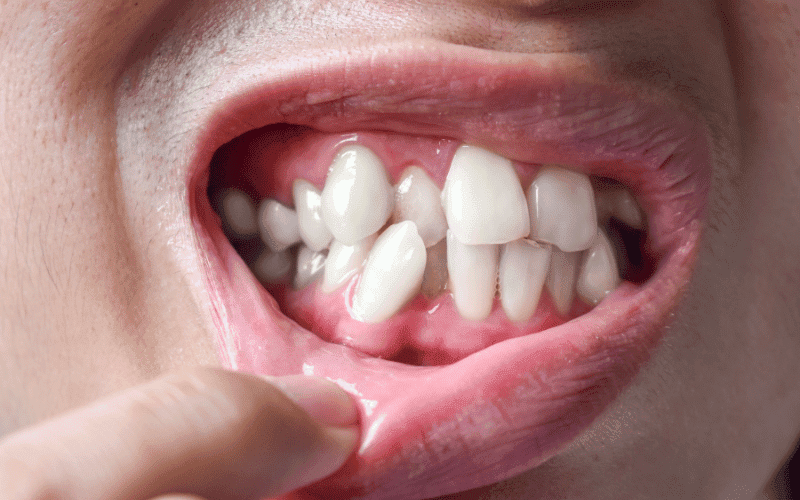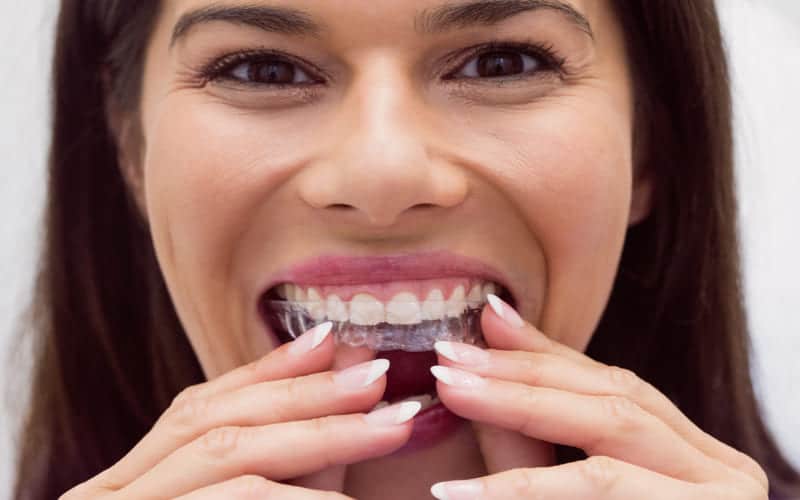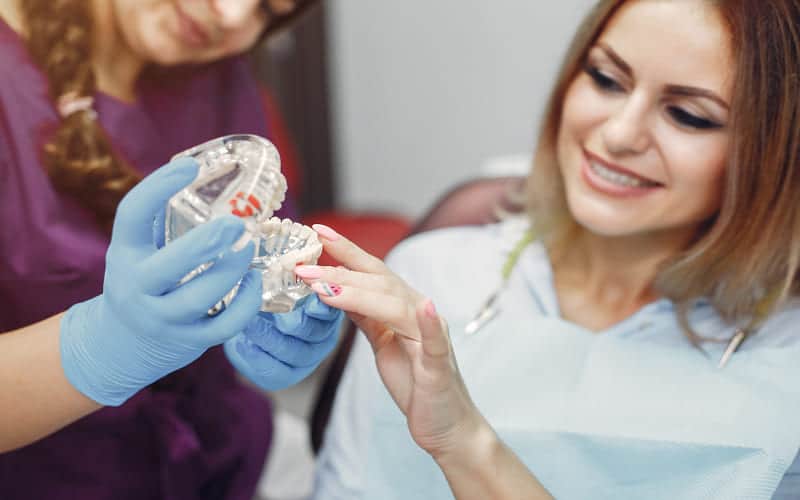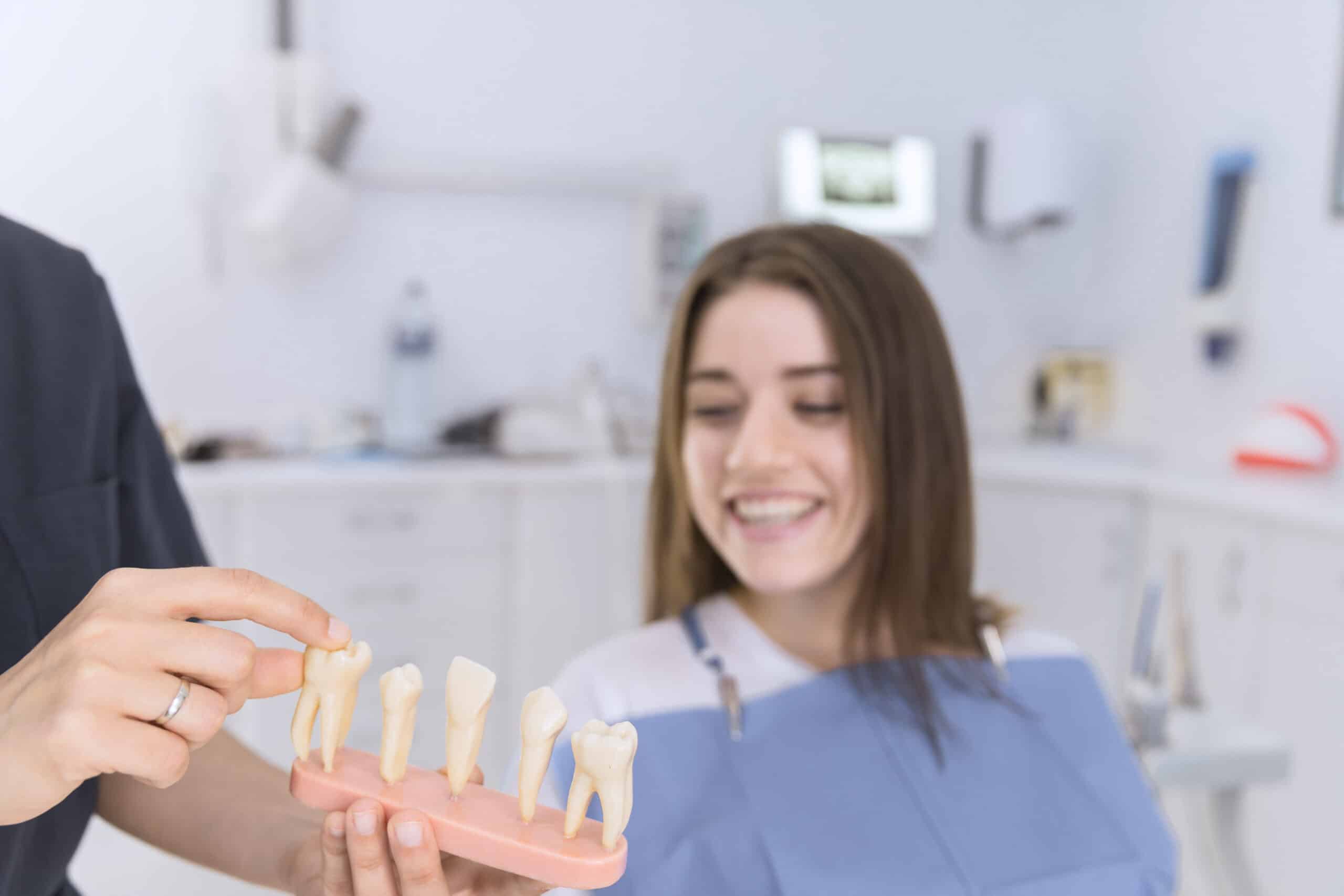Call: (810) 674-3060
Can A Cosmetic Dentist Fix A Crooked Teeth?

Crooked teeth, or malocclusion, occur when teeth are misaligned due to various factors, such as genetics, overcrowding, or childhood habits. This condition can lead to difficulties in chewing, speech impediments, and oral health problems like gum disease and tooth decay.
Depending on the severity, treatment options include braces, clear aligners, or dental surgery. While some cases are purely cosmetic, others may affect oral health and function.
Early detection and intervention are crucial for effective treatment and prevention of complications, emphasizing the importance of regular dental check-ups and orthodontic evaluations.
Common Causes of Crooked Teeth
1. Genetics: Hereditary factors play a significant role in determining jaw size, tooth size, and alignment, contributing to the likelihood of crooked teeth.
2. Maldevelopment of Jaw: Irregular growth of the upper or lower jaw can result in misalignment of teeth, leading to overcrowding or gaps.
3. Childhood Habits: Prolonged thumb sucking, pacifier use, or tongue thrusting can exert pressure on developing teeth, causing them to shift or become misaligned.
4. Premature Loss of Baby Teeth: Early loss of primary teeth due to decay or injury can disrupt the natural eruption pattern of permanent teeth, leading to crookedness.
5. Mouth Breathing: Chronic mouth breathing, often due to allergies or enlarged tonsils, can alter facial development and affect the alignment of teeth over time.
Types of Treatments Available For Crooked Teeth
1. Braces: Traditional metal braces are effective for correcting various types of misalignment by gradually shifting teeth into the desired position using brackets, wires, and elastic bands.
2. Clear Aligners: Removable transparent aligners, such as those offered by Invisalign, provide a discreet alternative to braces. They gradually adjust teeth alignment through customized trays.
3. Retainers: After braces or aligner treatment, retainers are often prescribed to maintain the corrected position of teeth and prevent them from shifting back.
4. Dental Surgery: In severe cases of malocclusion or jaw misalignment, orthognathic surgery may be necessary to reposition the jaw or reshape the facial bones.
5. Palatal Expanders: These devices widen the upper jaw to address issues like overcrowding or crossbites by gradually separating the palate bones.
Benefits of Fixing a Crooked Tooth
1. Improved Oral Health: Straightening crooked teeth makes them easier to clean, reducing the risk of plaque buildup, cavities, and gum disease.
2. Enhanced Aesthetic Appearance: Correcting misaligned teeth can significantly improve smile aesthetics, boosting confidence and self-esteem.
3. Better Chewing and Speech: Properly aligned teeth facilitate better chewing and speech articulation, improving oral function and communication.
4. Reduced Risk of Dental Trauma: Straight teeth are less prone to damage from accidental impacts or trauma, reducing the likelihood of chipped or fractured teeth.
5. Prevention of TMJ Disorders: Aligning teeth can help alleviate strain on the temporomandibular joint (TMJ), reducing the risk of developing temporomandibular joint disorders (TMD) and associated symptoms like jaw pain and headaches.
Risks and Considerations
1. Increased Risk of Tooth Decay: Correcting crooked teeth may involve the use of orthodontic appliances, which can make oral hygiene more challenging. If proper care isn’t maintained, this can potentially increase the risk of tooth decay and gum disease.
2. Treatment Duration: Orthodontic treatment to correct crooked teeth can span several months to a few years, requiring commitment to regular appointments and treatment plans.
3. Discomfort or Pain: During orthodontic treatment, discomfort or soreness may occur, particularly after adjustments or when wearing new aligners or braces.
4. Relapse: Without proper retention, teeth may shift back to their original position over time, necessitating the use of retainers indefinitely following active treatment.
5. Potential for Unforeseen Complications: In some cases, orthodontic treatment may uncover underlying dental issues or structural abnormalities that require additional intervention, potentially prolonging treatment duration and increasing costs. Regular monitoring by a dental professional is essential to address any emerging concerns promptly.
Final Words!
In conclusion, addressing crooked teeth through treatments offered by Burton Family Dental, a trusted name in dental care, brings numerous benefits, such as improved oral health, enhanced aesthetics, and better functionality. While risks like decay and treatment duration exist, proactive management and regular follow-ups mitigate these concerns.
For personalized care and expert advice, consult the Cosmetic Dentist in Burton at Burton Family Dental. Don’t wait to achieve your dream smile! Schedule your consultation today and journey to straighter, healthier teeth with us. Smile confidently, and live vibrantly!




